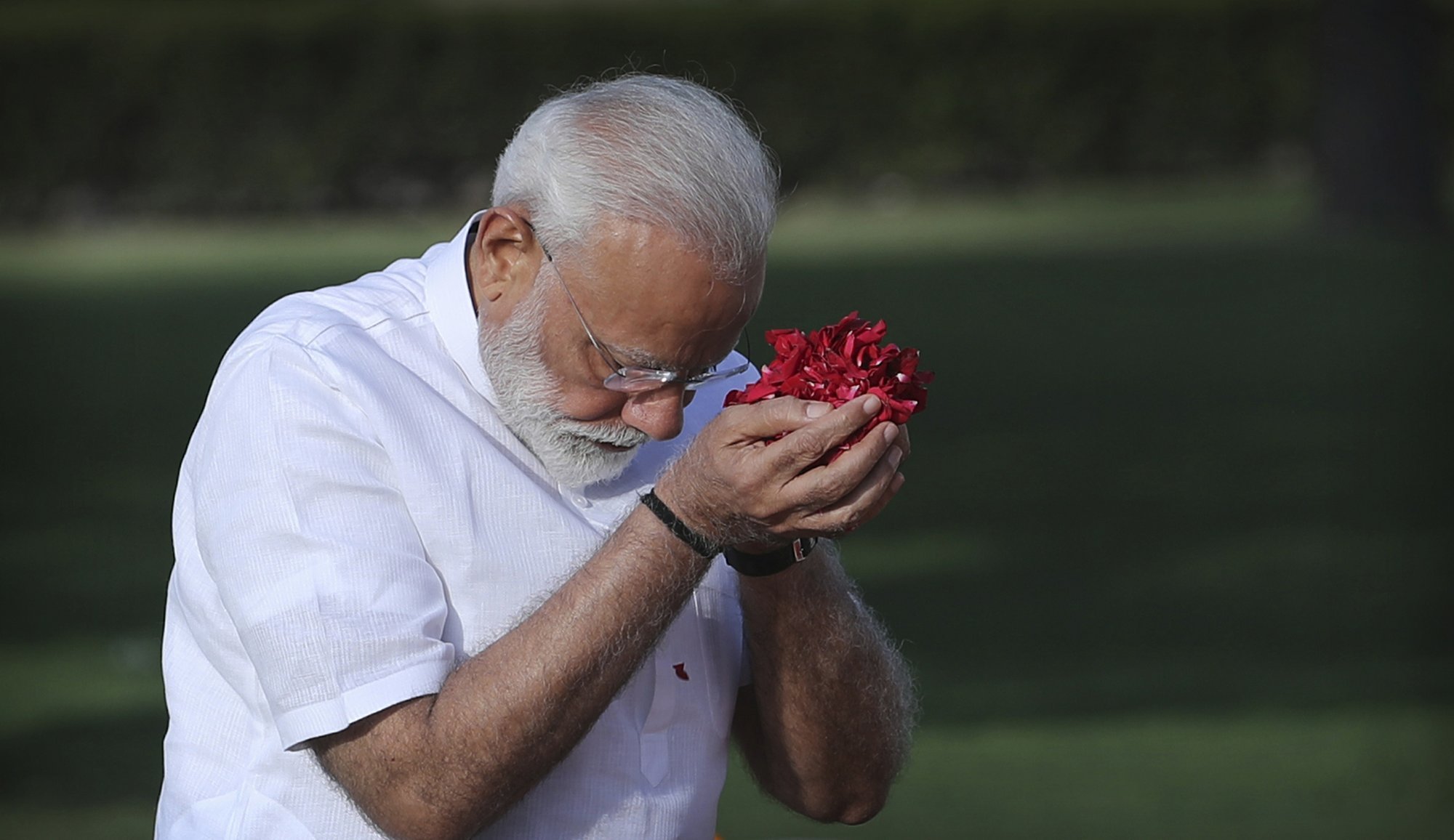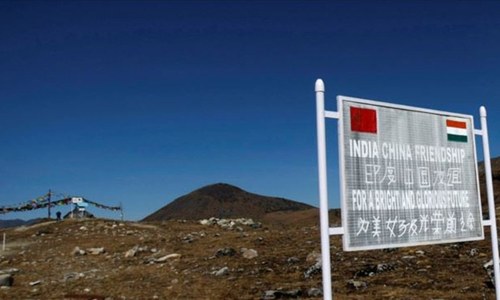'India wants peace but will give befitting response if provoked,' says Modi after China border clash

India and China said they want peace but blamed each other on Wednesday after soldiers of the two sides savagely fought each other with nail-studded clubs and stones on their Himalayan border, killing at least 20 Indian troops.
“We never provoke anyone,” Indian Prime Minister Narendra Modi said on national television, referring to Monday’s hand-to-hand fighting. “There should be no doubt that India wants peace, but if provoked, India will provide an appropriate response.”
In Beijing, foreign ministry spokesman Zhao Lijian said the clash erupted after Indian soldiers “crossed the line, acted illegally, provoked and attacked the Chinese, resulting in both sides engaging in serious physical conflict and injury and death”.
He said he did not know of any Chinese casualties, although Indian media quoted officials as saying at least 45 people were dead or injured on the Chinese side.
Zhao said the overall situation at the border was stable and controllable.
Under an old agreement between the two nuclear-armed Asian giants, no shots are fired at the border, but there have been fisticuffs in recent years between border patrols.
According to Indian officials, soldiers were hit with clubs studded with nails and stones during a brawl that erupted in the remote Galwan Valley, high in the mountains where India’s Ladakh region borders the Aksai Chin region captured by China during the 1962 war.
The rival armies have been eyeball-to-eyeball at their border for decades, but it was the worst clash since 1967, five years after China humiliated India in that war.
India’s foreign ministry said there had been casualties on both sides, but China has not disclosed any casualties so far.
Modi, who rode to power on a nationalist platform, met his defence and foreign ministers and the military chiefs late on Tuesday.
Modi, a strident nationalist, was elected to a second five-year term in May 2019 following a campaign focused on national security after spiralling tensions with old enemy Pakistan, on India’s western border.
India’s gung-ho media and the opposition piled pressure on him to respond aggressively.
“Gloves are off, with the Galwan valley clash, China pushed too hard,” the Times of India wrote in an editorial. “India must push back.”
“Beijing can’t kill our soldiers at the border and expect to benefit from our huge market,” it continued, advocating sanctions against Chinese imports.
“Why is the PM silent, why is he hiding?” Rahul Gandhi, leader of the opposition Congress party, had tweeted earlier. “Enough is enough; we need to know what happened. How dare China kill our soldiers, how dare they take our land.”
Hundreds of Indian and Chinese troops have been facing each other since early May at three or four locations in the uninhabited high-altitude deserts of Ladakh.
India says Chinese troops have intruded into its side of the Line of Actual Control or the de facto border.
China rejects the allegation and has asked India not to build roads in the area, claiming it to be its territory.
China demands India punish those behind deadly clashes
China’s foreign minister demanded on Wednesday that India punish those behind the deadly border clashes between their forces, and warned New Delhi not to underestimate Beijing’s determination to safeguard what it considers its sovereign territory.
Wang Yi’s comments came in a telephone call with his Indian counterpart, Subrahmanyam Jaishankar.
“The Indian side would best not make an incorrect judgement of the situation, would best not underestimate China’s strong determination to safety its sovereign territory,” Wang said in a statement issued by the foreign ministry.
He repeated China’s claims that India was solely responsible for the conflict, saying its forces had crossed the Line of Actual Control that divides the thousands of troops from the sides deployed in the area.
The statement said Jaishankar explained India’s position, but gave no details, and said New Delhi was committed to talks on reducing tensions.
Colonel killed
According to the Indian government sources, the fighting on Monday night broke out during a meeting to discuss ways to de-escalate tensions, and the colonel commanding the Indian side was one of the first to be struck and killed.
Many of the other Indian soldiers who died had succumbed to their wounds, having been unable to survive the night in freezing temperatures.
Unlike in India, the incident did not receive wall-to-wall coverage in China, where official media reported a statement on the incident from the spokesperson for the Chinese army’s Western Command.
On social media, bloggers and media aggregating platforms shared Indian media reports, such as the Indian army’s announcement acknowledging that the death toll had risen to 20.
Most vocal was the Global Times, a paper published by the official paper of the country’s ruling Communist Party.
Its editor-in-chief, Hu Xijin, took to domestic and global social media platforms to scold India, saying “Indian public opinion needs to stay sober” and to warn that China did not fear a clash.














































